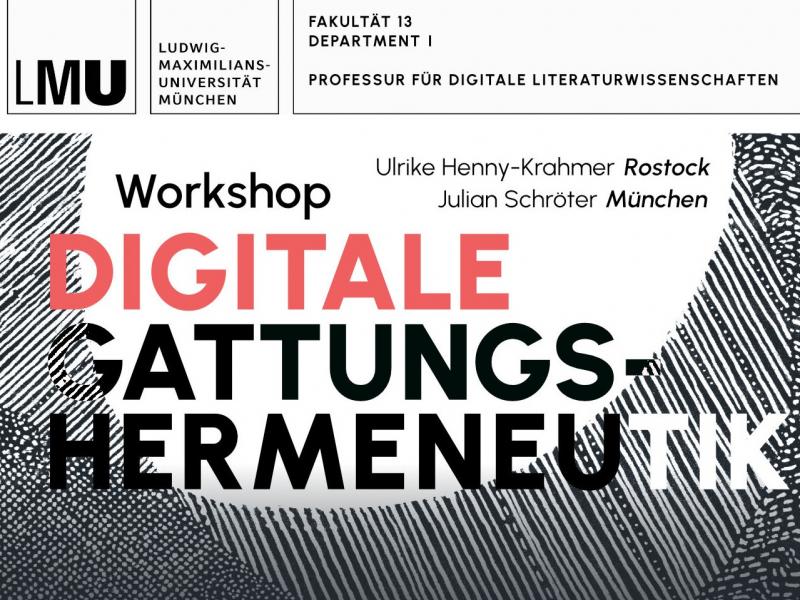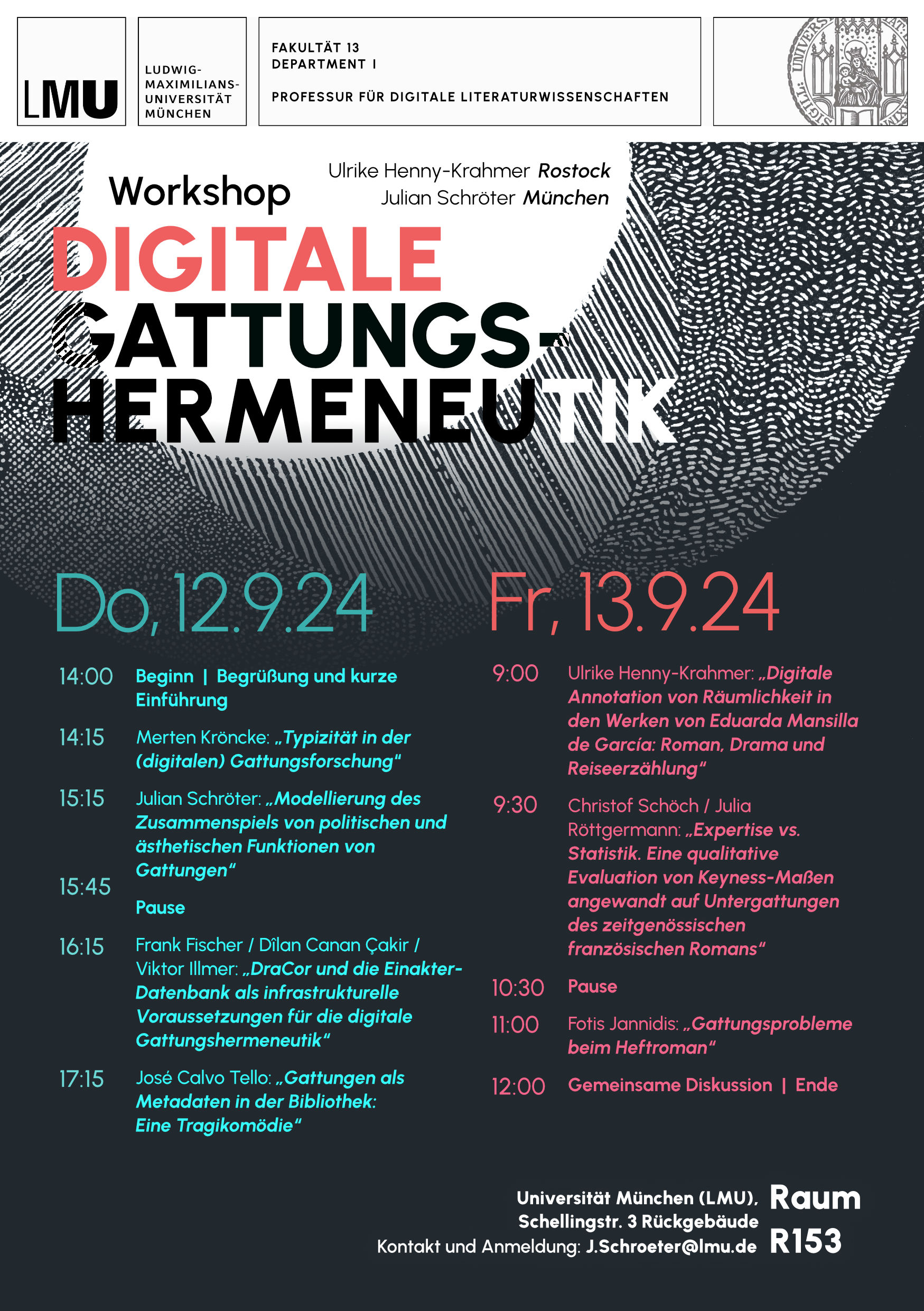Beyond Words Project at the Workshop on Digital Genre Hermeneutics
Ludwig Maximilian University of Munich

Date:
12.09.2024 bis 13.09.2024Place:
University of Munich (LMU)
Schellingstr. 3, Rear Building
Room R153
Contact and Registration: J.Schroeter lmu.de
lmu.de
Participation is free of charge
Categories:
WorkshopContact:
Julia RöttgermannWorkshop Description: "Digital Genre Hermeneutics"
Text types and literary genres have been a focal point of distant reading for over a decade. While early studies prioritized the recognition and reproducibility of text groups through stylometric proximity and distance-based clustering, as well as the replication of genre orders through classification tasks using machine learning (as in Jockers 2013), recent years (notably Underwood 2019) have seen a shift towards capturing historical genre semantics. This shift can be described as a move from a classificatory interest in genres as categorical systems to a historical and hermeneutic interest in genres as communicative units within contexts of aesthetic experience. The workshop aims to further pursue this path towards a historicizing and broadly hermeneutic interest by expanding the range of questions: Computational analysis methods, particularly machine learning, appear not only suitable for supporting classificatory approaches in genre research but also for examining the practices of literary cultures in the relationship between texts and genres.
The workshop will address fundamental questions of modeling literary history and the relationship between digital genre stylistics and (both historical and contemporary) literary practices of engaging with genres. Potential topics include:
- Genres as cultivated semantics that, through the normative power of poetics, become factors in the shaping of texts, thus influencing text types.
- The relationship between genre assignment practices and aesthetic expectations.
- Genre politics: Historical practices of assigning texts to genres can have literary and cultural-political motivations, which must be understood to accurately describe the function of genre concepts in literary cultures.
- Multiple perspectives: Genre affiliation is now commonly understood as a communicative attribution rather than an ontic affiliation of an entity to a fixed class of objects. A text can, therefore, be assigned to different genres in different cultural situations. By examining how genre assignments for specific texts change, one can gain insight into how the value systems and attentions of literary cultures shift; in some cases, it may also reveal how genre politics might be used to canonize or exclude works from the canon.
- The relationship between genre theory and empirical analysis: Possibilities for theory updates guided by principles.
The workshop will focus on exploring, discussing, and applying the possibilities of data modeling and computational text analysis in the context of digital genre hermeneutics.


